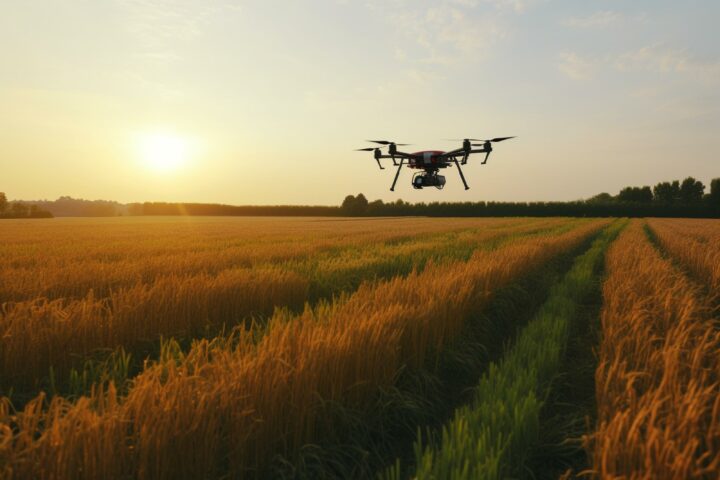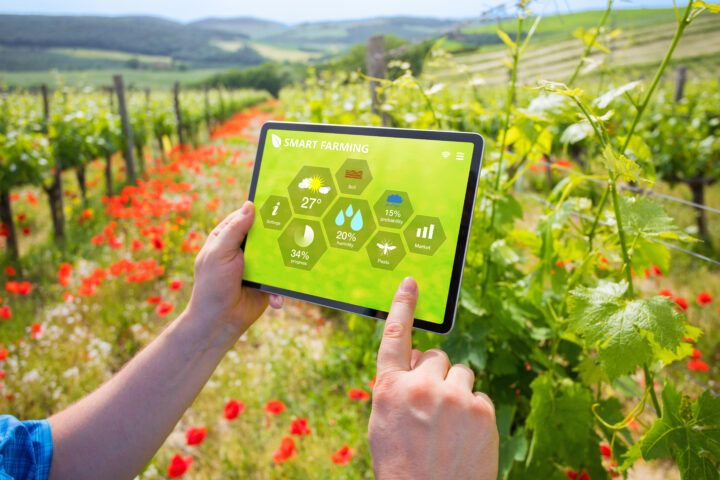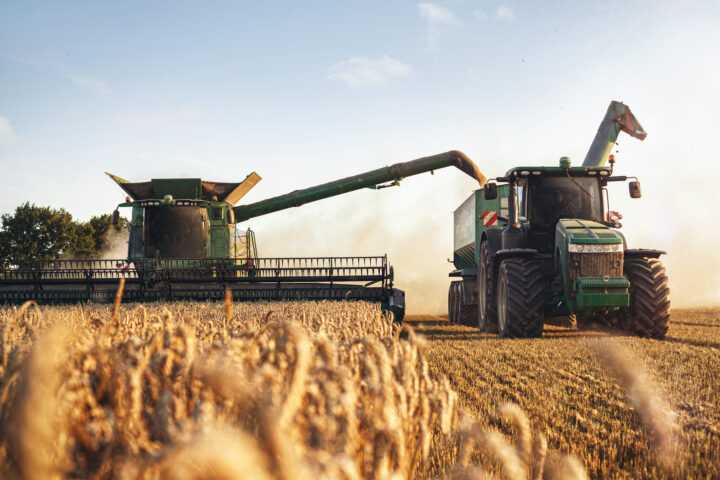
Chinese robot picks tea
There is a shortage of tea pickers in China. A robot developed by a researcher is set to remedy the situation and take over the work in future. Thanks to artificial intelligence, the machine can even recognise the shoots of the tea plant. The first harvesting robots are also already being developed in Switzerland.
Monday, May 6, 2024
China is known for its huge tea plantations. However, it is becoming increasingly difficult to find people to harvest the tea. As in many places, there is a shortage of skilled labour among tea pickers. The SRF programme «10vor10» reports that fewer and fewer people are willing to do the job.
«It's now very difficult to find tea pickers. Only older people are willing to do this work. The young people are well educated and prefer to work in a company or factory», explains Xu Yonghua, who works as a tea farmer in Meijiawu. However, the region's difficulties are no exception. According to the report, all major tea-growing regions are currently struggling with a shortage of young people.
A robot developed for tea harvesting could provide a remedy. It was designed by Professor Wu Chuanyu from Zhejiang Sci-Tech University and his research team. The robot works like a human worker. «It has sensors for seeing and, thanks to artificial intelligence, it can even recognise the shoots of the tea plant», says Chuanyu.
Robots to combat the labour shortage
The tea robot should be ready for use in just five years and be able to take over the work of three to four tea pickers. According to the professor, the tea plantations will gradually be designed for autonomous cultivation. Only in steep terrain will manual labour still be indispensable.
However, it is not only in China, but also in Switzerland that robots are already being developed to make harvesting easier or take over completely. For example, a tomato harvesting robot from Floating Robotics, a start-up that emerged from an ETH spin-off, is due to be launched on the market next year. This was reported by the « Agricultural Information Service». Salman Faraji from Floating Robotics came up with the brilliant idea. Faraji is confident about the success of his device: the robot is set to cover 1.5 hectares of greenhouse area and replace 3.5 workers.
At the end of last year, the harvesting robot was already working four times faster than in the previous year. Although Faraji is still looking for funding from investors, the interest from around the world gives him confidence. After all, hardly anyone is against robots stepping in to do work that no one who has the choice wants to do.
Digitalisation in agriculture has long been an issue
As the world's population continues to grow, but at the same time fewer and fewer people want to work in agriculture, digitalisation in agriculture has been an issue for some time. Machines are the only way to increase resource efficiency and ensure that the population is supplied with food.
In 2023, three experts from the agricultural machinery industry, vegetable growing and agricultural journalism spoke at the Swiss Food Talk about how digitalisation is changing the production of food. They agreed that we are in the transition from industrial to intelligent agriculture. Data and algorithms are becoming increasingly important and also serve the cause of comprehensive sustainability.
Kindly note:
We, a non-native editorial team value clear and faultless communication. At times we have to prioritize speed over perfection, utilizing tools, that are still learning.
We are deepL sorry for any observed stylistic or spelling errors.
Related articles

Why AI has not yet had its breakthrough in agriculture
Artificial intelligence is gaining ground in many areas. However, the new technology does not yet seem to have really arrived in agriculture. The reason for this is nature, which is throwing a spanner in the works of AI. Nevertheless, the opportunities that AI could offer agriculture are immense.

From Data to Harvests - How Digitization is Improving Agriculture
Digitalization is making its way into agriculture. At the Swiss-Food Talk on April 25, 2023, three experts from the agricultural machinery industry, vegetable production, and agricultural media discussed how digitization is changing food production. The consensus is that we are in the transition from industrial to smart agriculture, where data and algorithms as support allow precise interventions and serve sustainability.

Production: More food with fewer resources
One of the greatest challenges of this century will be to feed an estimated ten billion people in a safe and sustainable manner. To achieve this goal, agriculture needs to become much more productive.

How our daily lives end up in the water
When residues in our waters are discussed, agriculture is often portrayed as the main culprit. Yet a closer look shows that the sources are diverse and often much closer to everyday life than assumed.

New Breeding Methods at a Crossroads
It will soon become clear whether plants developed through modern genomic breeding techniques will be allowed to be cultivated in European fields in the future. Switzerland in particular would be well advised to at least keep an eye on decisions made in Brussels in order not to fall behind.

Why Strict GMO Regulation Stifles Innovation
New breeding techniques such as CRISPR-Cas are considered key to developing resilient crops, stable yields and reducing the need for plant protection products. ETH professor Bruno Studer warns that overregulating these technologies strengthens precisely those large agricultural corporations that critics seek to curb, while excluding smaller breeders and start-ups from the market.

A Superfood with Benefits and Challenges
Sweet lupin is Biovision’s “Superfood of the Year 2026.” It delivers high protein content, improves soils and supports biodiversity. Yet a closer look at agricultural practice shows that without breeding, crop protection and innovation, even this superfood remains a challenging crop.

